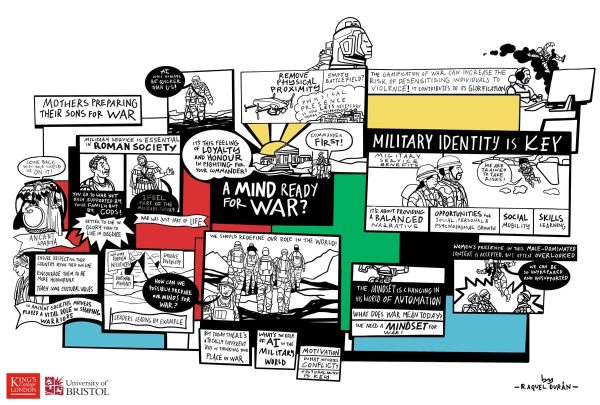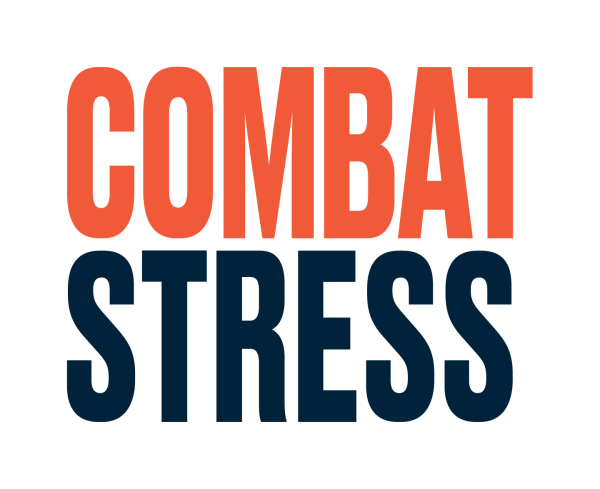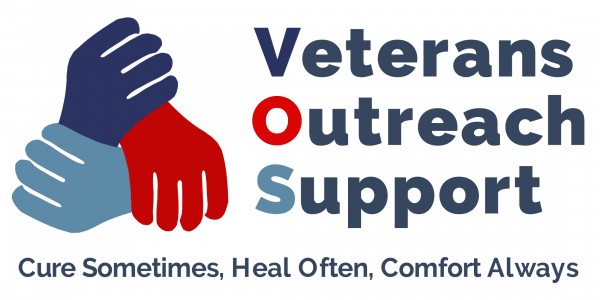On 17 July 2025, King’s College London hosted A Mind Ready for War: Ancient and Modern, a one-day workshop led by Dan Leightley (KCL) and Hannah-Marie Chidwick (University of Bristol). The event was part of the project Preparing the Body and Mind for War in the Ancient and Modern Armed Forces and brought together historians, researchers, serving personnel, and practitioners to ask one question:
How do societies – past and present – prepare both the body and the mind for war?
The workshop blended ancient history with contemporary challenges, enabling conversations that were as thought-provoking as they were relevant. By putting the ancient alongside the modern, the day revealed surprising continuities as well as marked contrasts in how humans have wrestled with the demands of conflict.
Ancient perspectives
The morning focused on the roots of the military mindset in the ancient world. Speakers explored how identity, loyalty, and readiness were shaped by families, communities, and states. Highlights included:
- Greek mothers and the ‘win or die’ psychology: Fiona McHardy discussed how families instilled a culture of absolute commitment to victory.
- Diaspora soldiers in Egypt: Mridula Gullapalli discussed how Greek military settlers were treated with suspicion as “foreign fighters.”
- The Persian Navy’s impact: Martin Lopez Howe traced doctrinal changes that transformed how naval power was used.
- Myth and family in preparation for war: Emma Bridges asked whether there are some things families of soldiers should never have to be prepared for.
- The Roman civil war soldier’s mindset: Hannah-Marie Chidwick revealed what happened when legionaries had to fight against their own.
These talks provoked rich discussion about how far ancient societies demanded sacrifices from combatants and their families, and how communities made sense of those sacrifices.
Modern context
The afternoon brought the conversation firmly into today’s world. Here, speakers and participants tackled the psychological, social, and technological dimensions of modern warfare:
- Women and conflict: Hannah West examined the often-overlooked role of women in shaping and experiencing war.
- Moving beyond the damaged-victim narrative: Karishma Jivraj presented findings from the Outcomes Study, challenging assumptions about veterans and mental health.
- Technology and risk-taking: Dan Leightley posed the question: What does it mean to be a soldier when your weapon is a drone, your decisions are guided by AI, and your battlefield is a command centre thousands of miles away?
These talks sparked debate about whether technology is reshaping the “warrior mindset” into something new, a “systems operator” mindset, and what might be lost or gained in the process.
Bridging ancient and modern
The key part of the day was the synthesis. When ancient and modern voices came together, the questions deepened:
- Is preparing for war about resilience, or about inevitability?
- How far can we train societies for war? And does this risk normalizing conflict?
- How does remembrance and intergenerational memory shape our collective attitudes toward violence?
- In an age of digitised conflict, are we keeping pace with the psychological and ethical consequences?
Participants also reflected on humour, absurdity, and desensitisation as coping mechanisms; on diversity and representation in stories of war; and on how society continues to balance the tension between preparing for war and questioning its value.
Looking ahead
What emerged most clearly was that preparing body and mind for war is never just about soldiers. It is about families, communities, and societies, in both ancient and modern times. The workshop reminded us that military values clearly endure across centuries, but the ways we frame them, understand them, and challenge them continue to evolve.
While we may have partly answered our opening question, it now leads us to ask another question:
Are we building a mindset fit for the realities of 21st century conflict, or coding a mindset we don’t yet fully understand?
A huge thank you to all our speakers and participants for their insight and energy. And a special thanks to illustrator Raquel Duran, whose artwork captured the day’s discussions in a way words alone cannot!


















